Wallows Threw Everything At the Wall For “Tell Me That It’s Over”
For their sophomore album “Tell Me That It’s Over,” Wallows embraced a new sense of uncertainty and experimentation
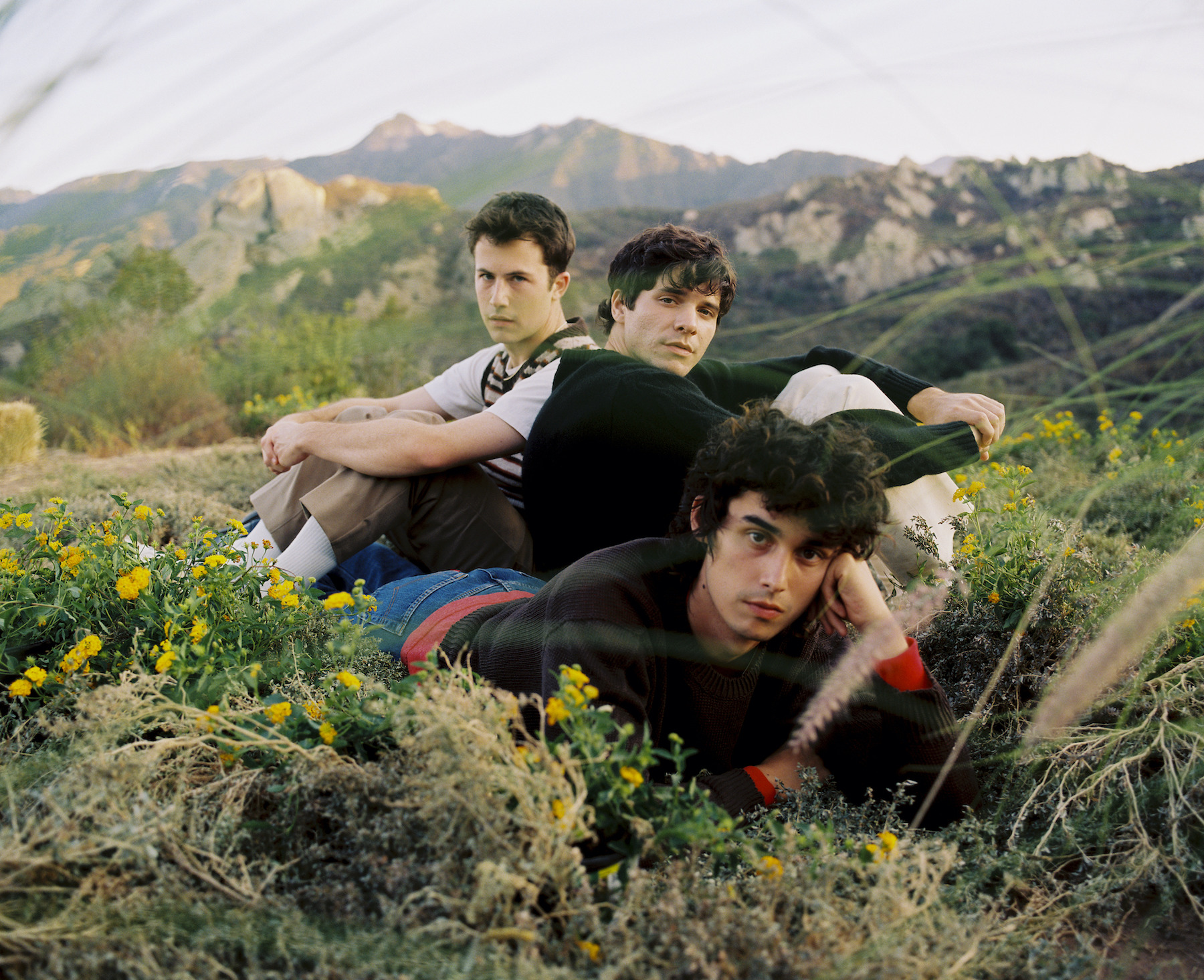
Wallows—composed of actor Dylan Minnette (Scream, 13 Reasons Why), Braeden LeMasters, and Cole Preston—released their sophomore album Tell Me That It’s Over on March 25th, right before they went on tour. For the new project, Wallows embraced the open-minded, adventurous spirit that makes their music so distinct, creating a project with everything from dance-pop to indie-folk.
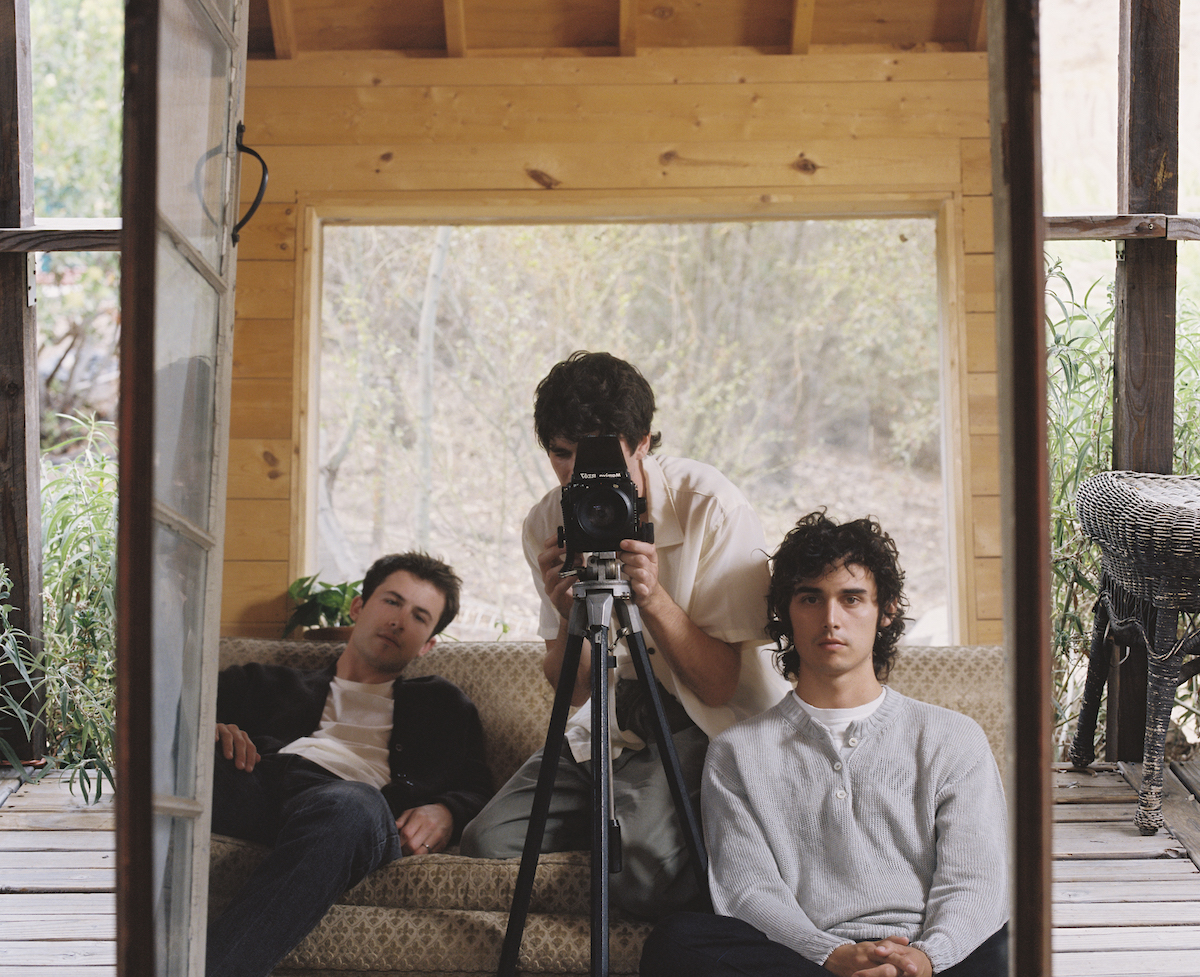
The Wallows tour will include a sold-out show at The Greek Theater in LA and a stint in Europe and Australia. This is unsurprising; the band’s fresh sound meant they had a successful 2019 debut album (Nothing Happens) and 2020 EP (Remote.) While their sophomore album Tell Me That It’s Over could have been a chance to form a distinct Wallows sound, instead they decided to launch the next phase of their career with an experimental project; unafraid to get a little unusual. And as the dazzling Tell Me That It’s Over shows, the weirdness still works.
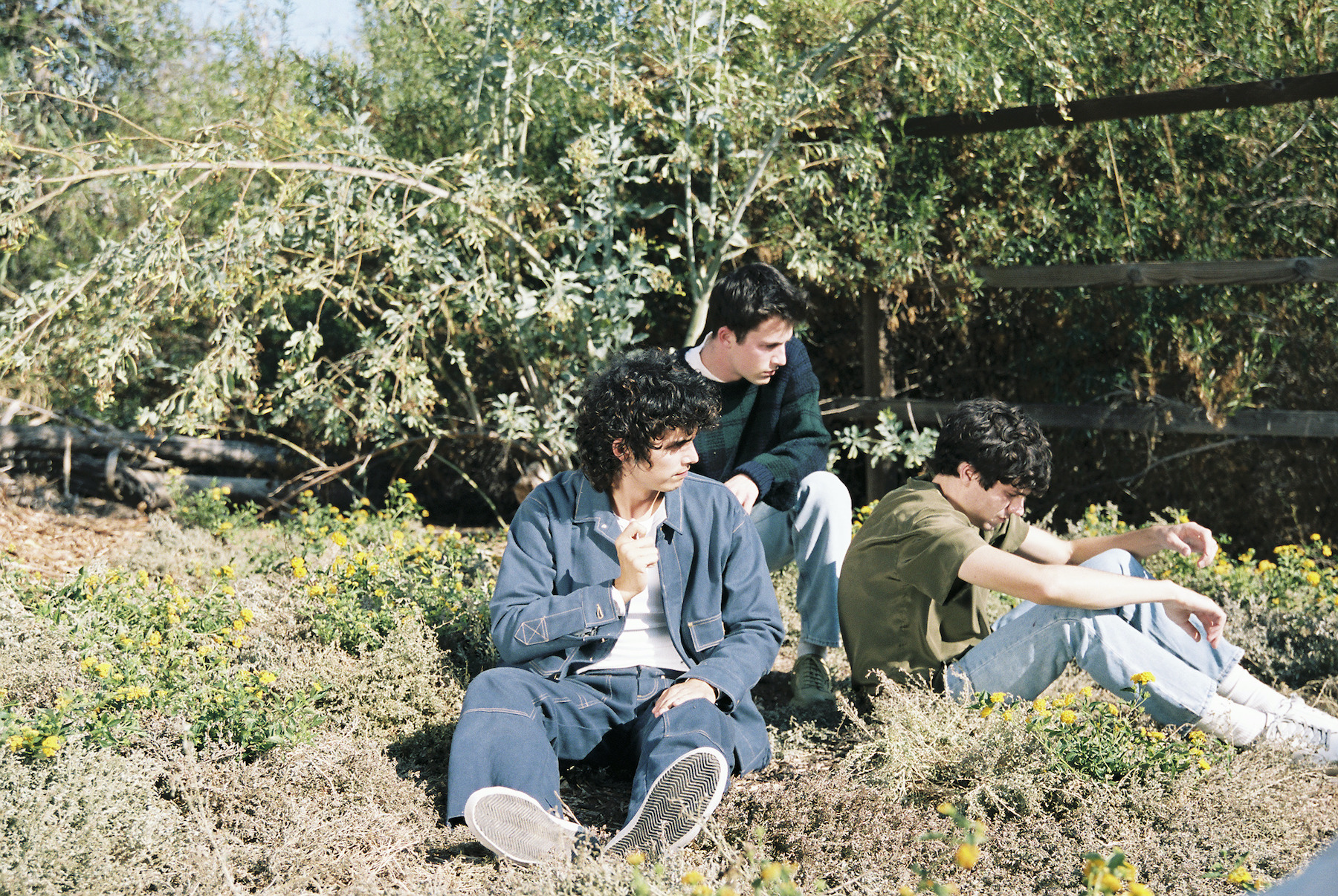
V chatted with Wallows after the Coachella leg of their “Tell Me That’s It Over” tour. Read on to hear about the journey to their new album, musical icons, and more. Read the exclusive interview below!
V Magazine: Who would you most want to work with, living or dead, at this moment? Why?
Braeden Lemasters: Maybe a poet or a literature person to collaborate with lyrically. That’d be fun. Like Leonard Cohen.
Dylan Minnette: There are so many people that I’d love for Wallows to work with. I’d love it if Frank Ocean was just like, “Yo, I’d love to produce a track for you guys.” I don’t foresee that happening, but that would be amazing.
BL: Brian Wilson in 1966 would be cool, like a 23-year-old Brian Wilson.
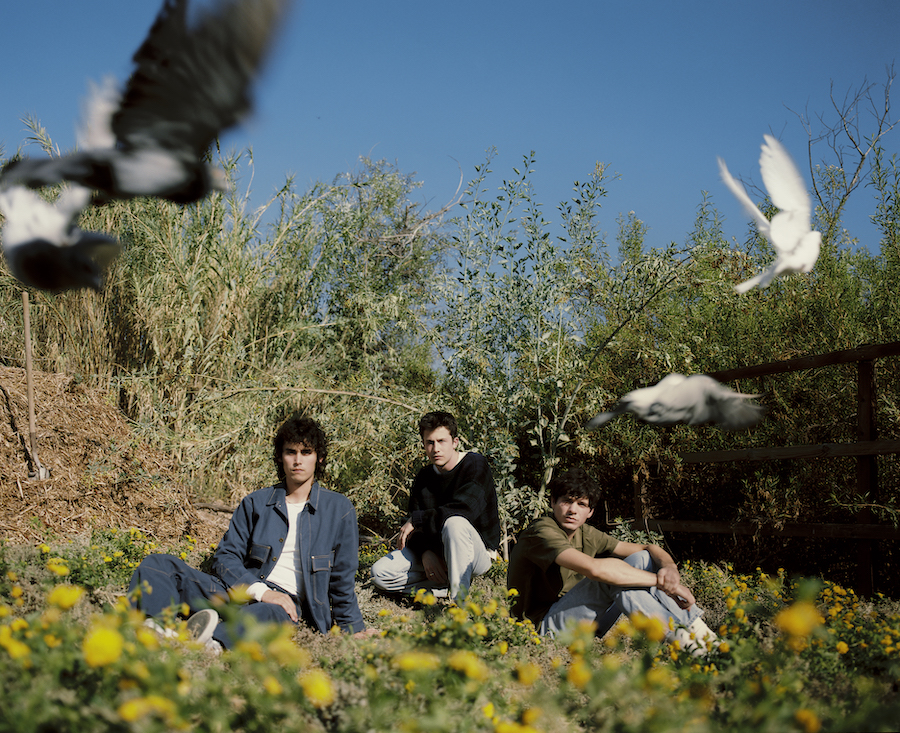
V: So your new album, do you feel like this represents a new era for you? Or do you see it just as an extension of previous projects? How do you conceptualize each project in relation to the others?
DM: This one was the first one that we did not really conceptualize from the get-go. We found meaning in it and found what it was once it was close to finished. We’re in this unique position of, “Yes, this is our sophomore record, and it’s intimidating but we have already released two or three albums’ worth of music before this.” So we felt more freedom to not overthink it and go the opposite route with our sophomore. I feel like it’s all of the above. I think it’s an extension of all our previous projects, but also a lot of it feels really fresh and new and exciting.
BL: I’d say it feels more like an extension. I think a new era is when bands have a new band name or something. I think everything’s an extension of what you make and as you get older you change.
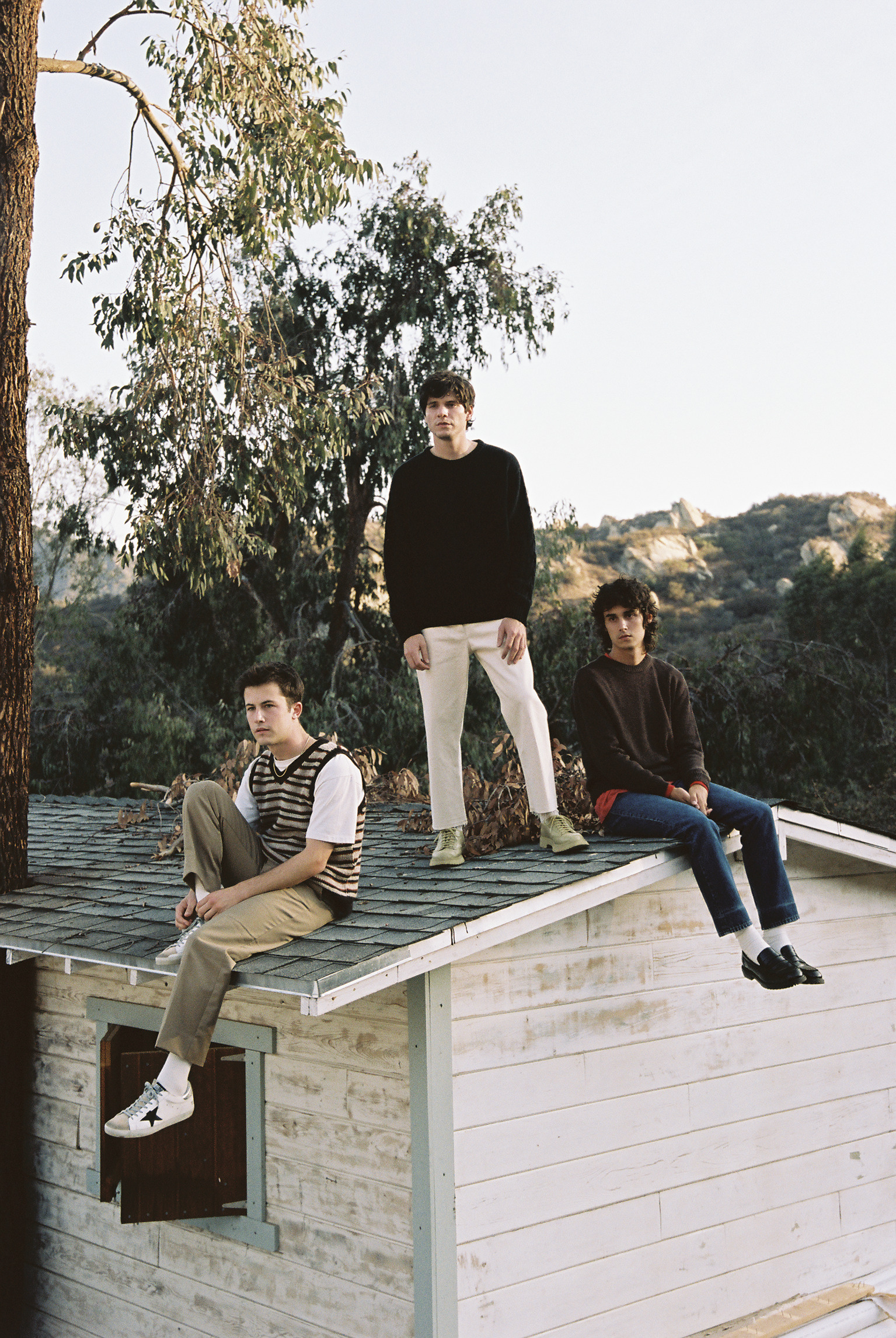
V: Someone mentioned that playing at Amoeba Records was a really meaningful moment, because you guys were from the local scene. I was curious if there are other goals that are very emotionally salient for you guys that other people wouldn’t expect?
Cole Preston: Gosh, Coachella was a big one. Coachella was definitely one. We’ve checked that box now.
DM: Selling out the Greek Theater. It’s quite a feat that I can’t believe is happening. We’ve seen multiple shows there growing up in California. It used to feel like this unattainable massive thing. Now we’re doing it, it’s crazy.
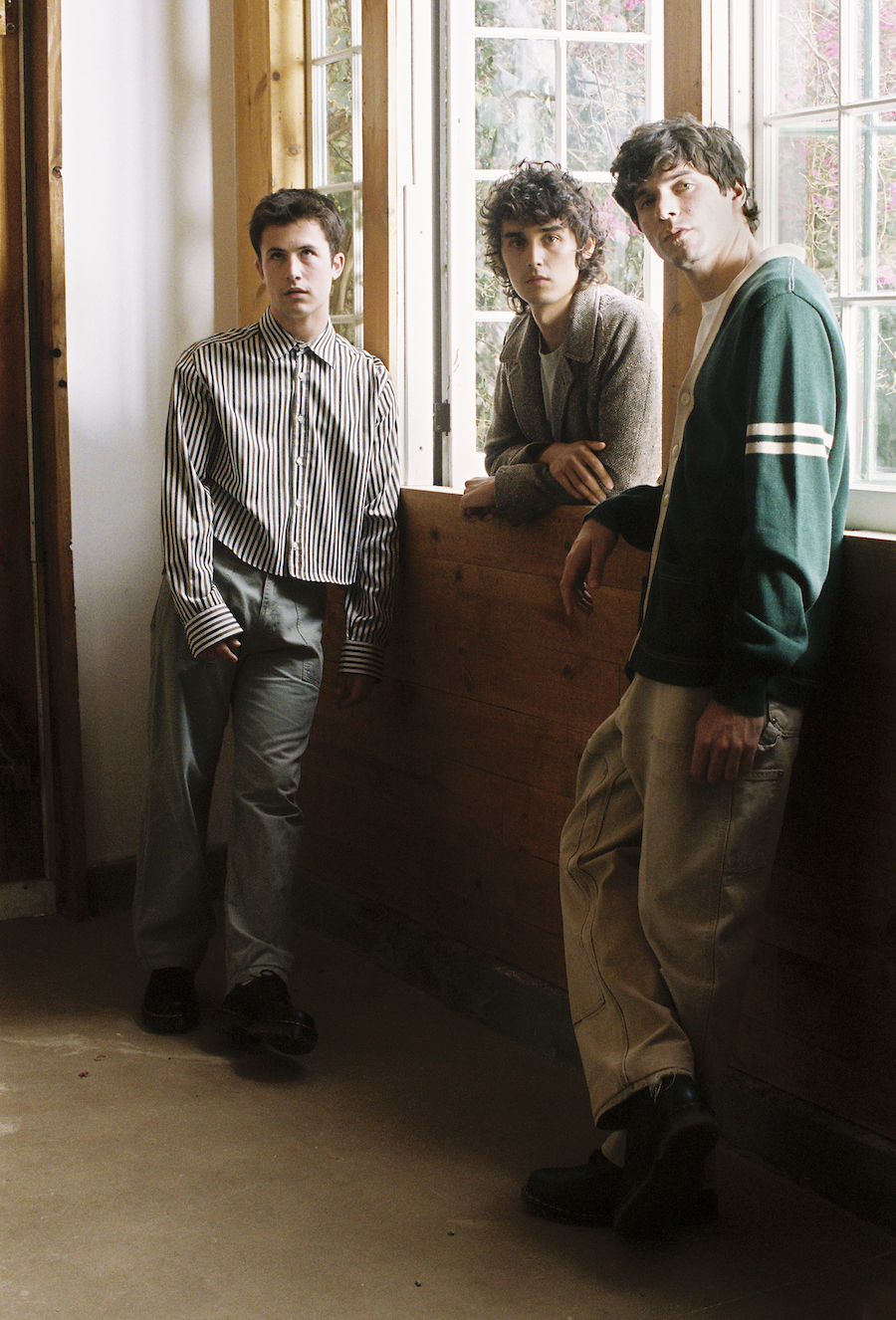
CP: That is crazy. There’s a vantage point near Griffith Park where you are kind of behind the stage looking out at the seats. I went on a hike one day and I saw a bunch of buses and semis outside and was like, “Oh, it’s a show.” So I looked it up. It was the Deftones playing there. But I was like, “Cut to September, that’ll be our crew there.” It’s pretty trippy.
DM: One more is seeing our name on the top line of the Lollapalooza day-by-day lineup. That’s such a random thing. I just stared at it for like five minutes the other day, trying to imagine it being real. I remember I was going to that festival when we were 16 and just thinking every single artist playing any set time was so freaking cool. Anyone who’s playing at the festival is so cool and to see our name that large is so strange, but it’s awesome.
CP: So, we better deliver.
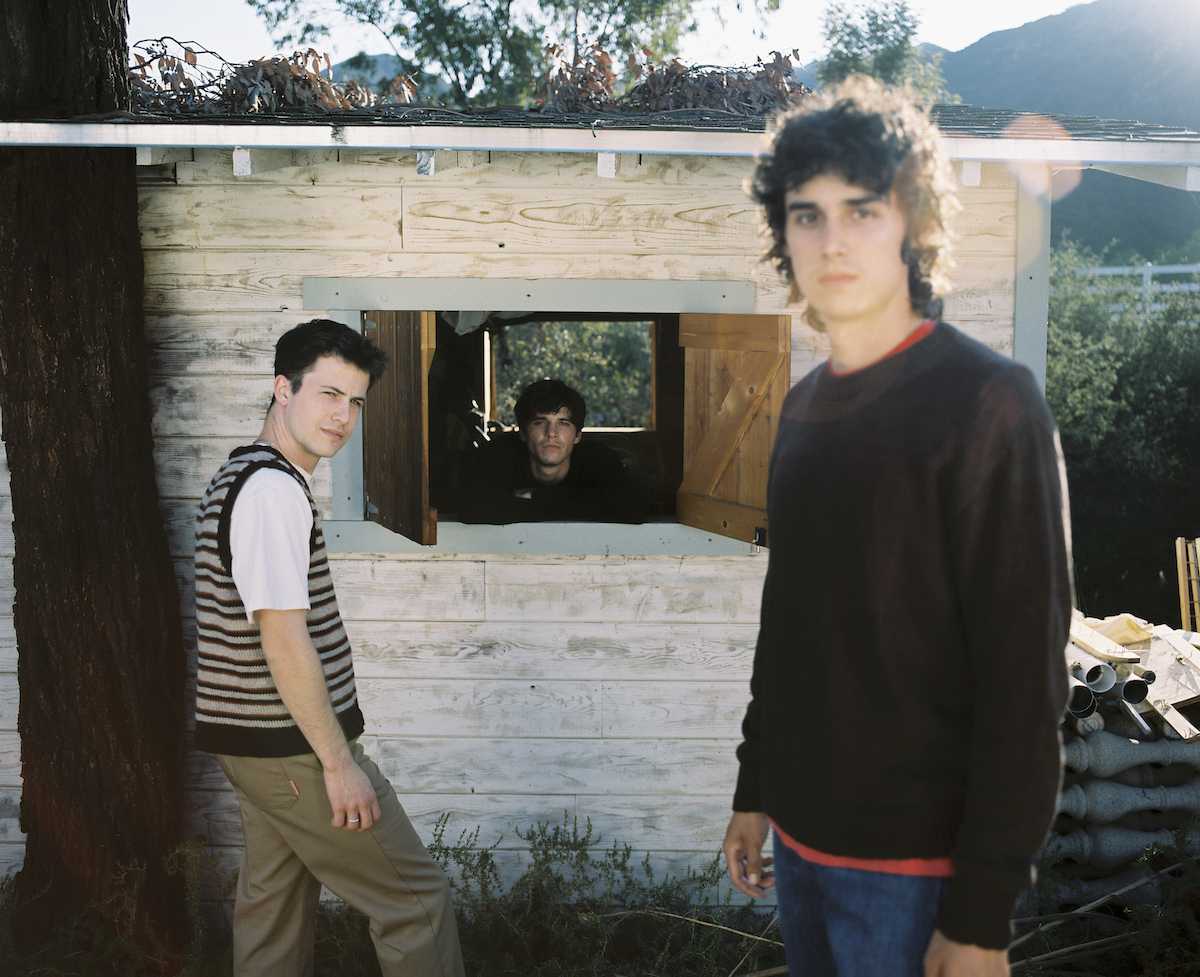
V: What is the biggest compliment you could receive about your music?
BL: If someone says that they have a lot of sentimental value or a lot of memories attached to our music, I think that’s cool. If they chose to listen to our music during a very important time in their life or just a long, long period of time. That’s a cool compliment.
DM: When people say “your music got me through high school.” People go as far as to say “your music saved my life.” The weight that holds is absolutely insane. No matter what we accomplish as a band that is clearly and obviously the most important thing. It’s really emotional hearing that. I remember seeing a YouTube video once. This guy said a song on Nothing Happens actually saved his life, made him rethink things. I was like, “This is surely the most rewarding thing I could ever see.” It really makes what we do feel important. Because for us, we just do it for fun. It’s fun to make art. But that makes it feel important.
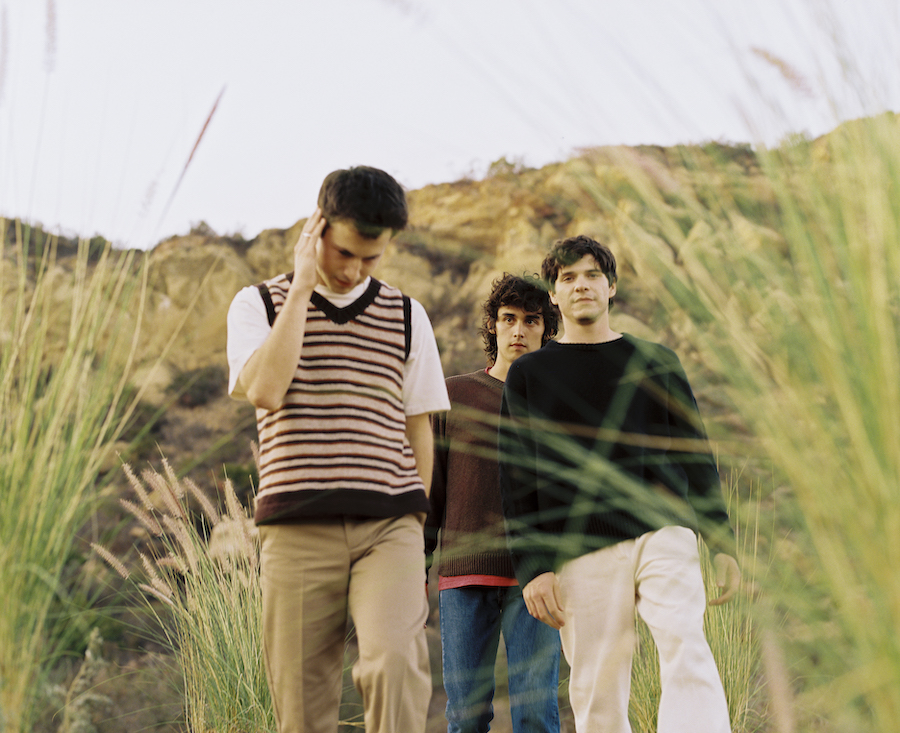
V: Are there certain genres or sonic textures that you guys haven’t explored yet, but you really want to?
CP: I think it’s funny. With this second record, we sort of covered a lot of experimental ground. Obviously, I don’t think anytime soon we’re going to drop a rap version of a song or anything. We aren’t going to do that. But we definitely broadened our horizons and got more experimental and riskier with some of our choices. This last record is not, you know, “drums, bass, guitar vocals,” it’s way more intricate.
Going forward, we have talked about things like, “Okay, now that we’ve done that and got that out of our system. I feel like future stuff, I would like to achieve something that’s more simply executed.” Kind of do “less is more,” which I guess in some ways is kind of a form of experimentation, too. But I feel like we really like threw everything at the wall on this record. We could experiment and keep going for infinity because technology changes and things change. But I think for the three of us simplicity is important going forward.
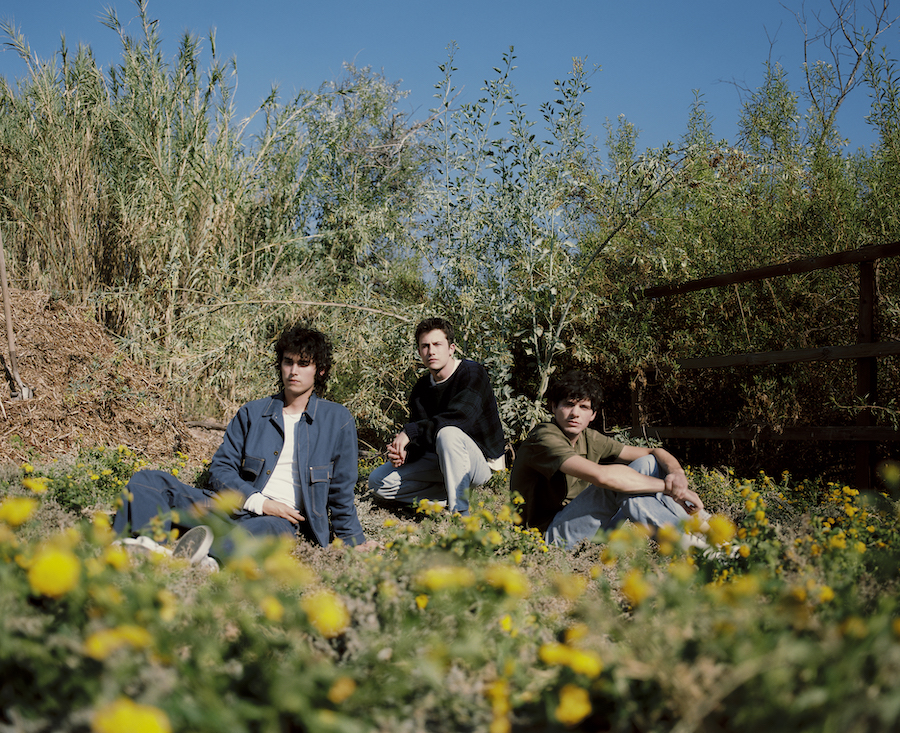
V: So, you guys seem pretty politically involved. And I know there was a show where people came and you asked them to bring supplies to donate to a local nonprofit for underprivileged youth, which I thought was really commendable. And I was curious, how do you guys want to use your platform in the future? How do you think about having a platform and the weight of having a platform?
CP: We know that we do have a platform and there’s a certain level of responsibility that we have taken on. I think the best thing that we can do is try and set positive examples for people and express what we believe in, like on that tour in 2019. We aligned with certain organizations that we felt were doing good things and that we believed in. We let our fans see that and participate in that.
I think there’s a balance, we don’t want to shove anything down people’s throats. There’s not a greater Wallows agenda and we aren’t too politically active with our songwriting. We’re not infusing that into our lyrics so much, just trying to set a positive example for people because there are a lot of kids who look up to us.
Discover More
